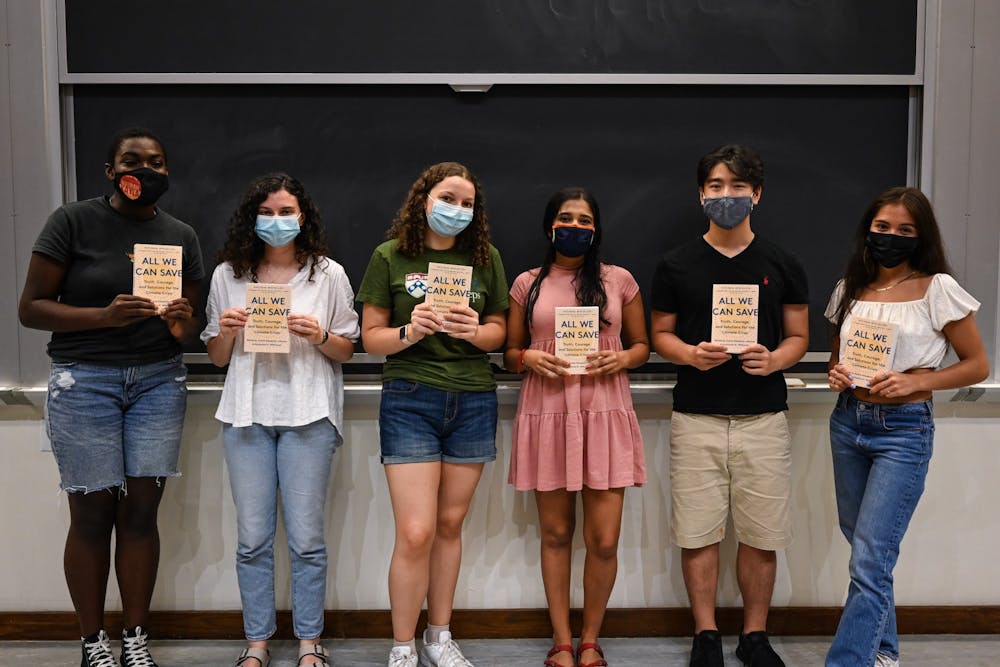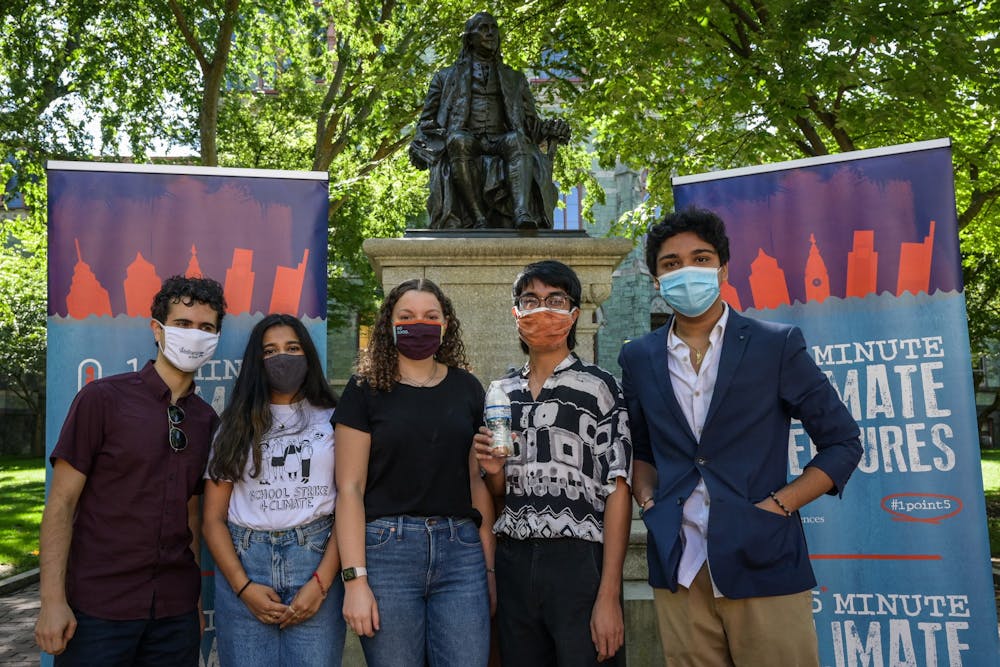The weather this October has been a dream—some days, the vibrant sun setting in mid–afternoon is the only indication that it’s not August. The chilly bite of fall is just starting to set in as we head into November. You know what that means: getting more use out of your favorite summer clothes, eking out a few more sun–soaked lunches outside, and letting the jacket that you bought for blustery winter days collect dust in the closet for just a little longer.
Unfortunately, it means more than just that. As falls begin to get warmer, not only in Philadelphia but around the world, we’re forced to confront the costs of a few extra days of sun. Not only the costs that are visible to us, like this year’s extreme rainstorms, but also the future implications of the climate crisis for the city of Philadelphia.
Penn is in a unique position. It's entrenched in the geographical epicenter of recent climate issues, and as an institution, it has a massive amount of resources and intellectual capital to address climate change.
One of the defining traits of the modern climate movement is the energy of the youth. All around the world, teenagers and young adults are leading marches, signing and creating petitions, and innovating in the sustainability space. Penn’s robust community of sustainability and climate activists is no exception, with student leaders Mark Wasuwanich (C '23), Skylar Cannon (E '22), Marina Dauer (C '22), and Ryan Lam (E '22) all spearheading the issue from different angles.
Marina, a member of the Student Sustainability Association at Penn (SSAP)’s executive board, advocates for high–impact individual action, specifically as it pertains to the Penn administration’s divestment from fossil fuels. Marina and SSAP target fossil fuel divestment for one reason: Money talks, especially for a university with one of the country’s biggest endowments.
SSAP was instrumental in the formation of the All–Ivy fossil fuel divestment pledge, an agreement signed by the student body presidents of each Ivy league university urging their schools to cease new investment in the fossil fuel industry. The resolution was featured in the New Yorker and cited as one of the reasons behind Harvard University's divestment, illustrating the collective power of individuals’ actions. Students worked to bring the issue up to their university's administration, and in doing so made sure that the climate movement on campus was heard in a tangible way.
Mark, co–founder of Penn Climate Ventures (PCV), an organization focused on fostering climate innovation on campus, recognizes the importance of practical, financially–oriented solutions to the climate issue. As a first year, Mark had the goal of creating a sustainability startup to build upon renewable energy research he'd done in high school. However, after joining multiple clubs in both the sustainability and entrepreneurship spheres, he grew frustrated by the lack of intersectionality between the two areas.
During last year’s Penn Sustainability Challenge, an event where students pitch ideas on how to make Penn a more sustainable community, Penn Climate Ventures was born. It quickly became a space for aspiring climate entrepreneurs and innovators to collaborate through a variety of workshops and fellowships.
Through initiatives like the Ideathon—an event where students propose business–oriented solutions to specific environmental issues—and the group's consulting fellowship—where students work in groups to learn the basics of sustainability consulting and try their hand on a real case—PCV provides a more scalable, solutions–oriented perspective to sustainability.
“Many groups on campus take a very activist approach to the movement, but at Penn Climate Ventures, our approach is gearing students to continue above and beyond after they graduate from Penn,” Mark says. “For example, if you want a job learning about working in renewable finance, or those kind of things that are not being taught as much at Penn, we want PCV to provide the space and resources for students to do that.”

Courtesy of Marina Dauer.
Climate change education struck Ryan and Skylar, co–coordinators of Penn Sustainability's Eco–Rep program, as a critical piece of the climate movement.
The Eco–Rep program is a group of 13 undergraduate students who collaborate on projects around campus. For example, Eco–Reps are currently working on a training program for food service workers to reduce waste in our dining system, as well as collecting data on Penn student habits using the Green Living Certification survey.
One of the goals of the program is to better incorporate sustainability into Penn academics, whether it’s through a climate requirement for classes or just more options for students interested in the environment. Skylar, Ryan, and the other sustainability leaders I talked to had the same sense about the general attitude on campus towards sustainability: We know climate change is an issue, and we care about it in the distant future. But how can you convert this surface–level interest into actual action?
“Most people are woefully uninformed about some of the intricacies of the climate movement, and just sustainability in general,” says Ryan. “It’s not typically something you’re formally educated on; you might pick something up from social media or the news, but having a formalized course of study gives you a better understanding of the big picture. Sustainability is so interconnected, so intersectional. So studying it in an academic way gives you a better sense of the grand scope.”
A critical part of the Eco–Rep program is the students themselves. According to Skylar, “It really helps having the student perspective because we know what students would actually participate in. I know people aren’t just going to do a 30–minute survey for fun, so having a student perspective on what works is really important.”
After all, the administration’s actions can only be so impactful on their own—the real determining factor of how sustainable our campus can be is the students. “They can hand out recycling bins at the Quad, but it’s up to the students to actually recycle,” says Skylar. “That’s one part that is more on the Penn students that we need to work on: a lack of caring about the urgency of sustainability.”
And ultimately, it makes sense that it comes down to the students. We’re the ones experiencing and interacting with the campus community to the fullest extent. As illustrated by PCV and Eco–Reps, each and every one of us has the opportunity to make an impact. It can be overwhelming at times, but Penn Sustainability is a great resource for those looking for a place to start.
Lots of things about the future of sustainability at Penn and in the greater world are unclear, but the movement has picked up steam at an unprecedented pace in the past decade, permeating every part of our daily lives. With young people like Mark, Marina, Ryan, and Skylar at the helm at Penn and beyond, we’re certainly in good hands.

